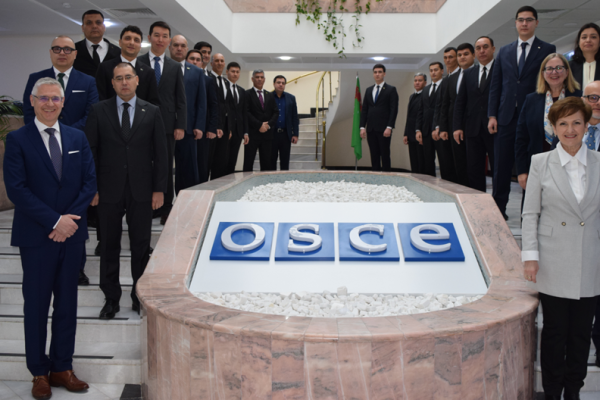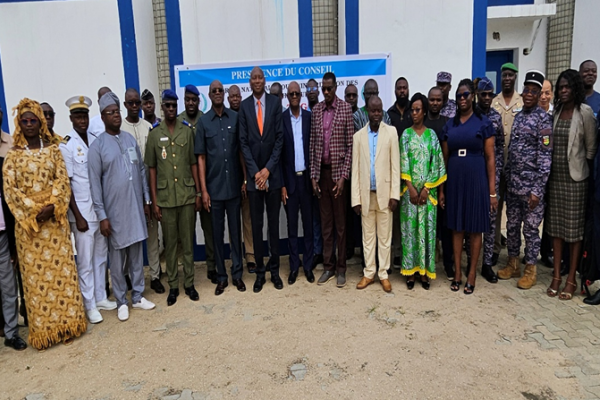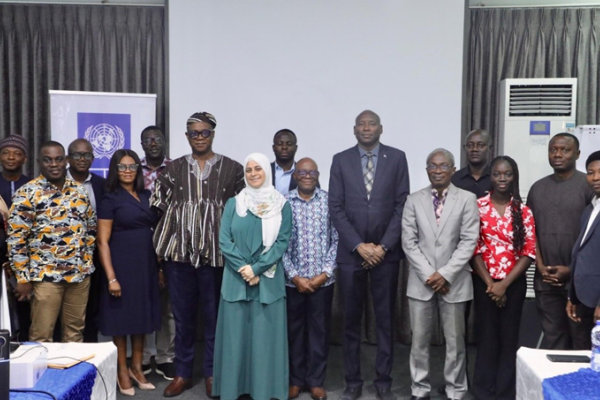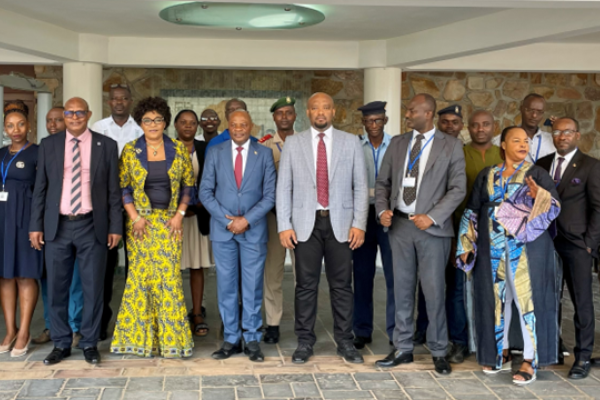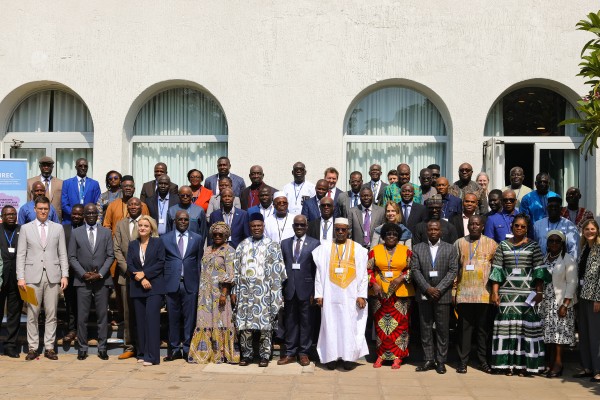On 23 October, the United Nations Office for Disarmament Affairs (UNODA) and the Permanent Observer Mission of the African Union (AU) to the UN co-hosted a side event on the margins of the United Nations General Assembly First Committee to showcase key experiences and discuss lessons learned from five years of implementing the joint AU–UNODA Africa Amnesty Month (AAM) project.
This first-ever New York side event on Africa Amnesty Month was convened in a hybrid format, with panelists and attendees participating both in person at UN Headquarters and virtually from across regions. The event provided a platform to assess progress and challenges in the national implementation of the Africa Amnesty Month, while gathering stakeholder perspectives to inform future efforts. Insights shared during the discussion helped contribute to broader deliberations on advancing the Silencing the Guns agenda and enhancing peace and security initiatives across the African continent.

In opening remarks, the Director and Deputy to the High Representative for Disarmament Affairs, Adedeji Ebo, underscored that Africa Amnesty Month provides “an innovative platform for promoting peace by encouraging the voluntary surrender of illicit small arms and light weapons without fear of arrest or prosecution,” noting its role in fostering community trust, reducing illicit weapons in circulation, and strengthening the foundations for long-term peace and stability. He stressed that the initiative is “particularly timely” amid persistent global security challenges and aligns with the AU’s Silencing the Guns agenda and the 2030 Agenda for Sustainable Development.
The Director highlighted UNODA’s cooperation with the African Union through the joint Africa Amnesty Month project. Implemented with the Regional Centre on Small Arms in the Great Lakes Region, the Horn of Africa and Bordering States (RECSA), the project has supported 16 African countries and facilitated the collection and destruction of over 22,000 illicit weapons, while empowering communities and building national capacity. Citing recent launches in Uganda and Mali, Mr. Ebo emphasized the initiative’s community-centred impact, including in the areas of youth engagement, awareness-raising and weapons disposal.
Mr. Damilola Abikoye, Advisor, Permanent Observer Mission of the AU to the UN, recalled the success of the ninth Africa Amnesty Month forum held in Kampala and reaffirmed the AU’s commitment to “building safer communities through voluntary disarmament.” Underscoring that the proliferation of small arms and light weapons continues to threaten peace, security and development across the continent, he highlighted Africa Amnesty Month as a comprehensive, African-led initiative that promotes trust, community engagement and voluntary weapons surrender without prosecution. He concluded by recalling the AU’s Agenda 2063, affirming that its aspiration for “a peaceful and secure Africa…where all guns are silent” is being realized “one surrendered weapon, one safer community at a time.”
Ms. Nuala Ní Mhuircheartaigh, Deputy Permanent Representative of Ireland to the UN, underlined the importance of Africa Amnesty Month as a practical contribution to advancing the Silencing the Guns agenda and supporting peace, security and sustainable development across the continent. As a first-time contributor to the joint AU–UNODA project, Ireland emphasized the importance of sustained partnerships and solidarity to ensure long-term stability and human security in Africa.
The panel discussion that followed featured the Director of the United Nations Regional Centre for Peace and Disarmament in Africa (UNREC), Ansleme Yabouri; Eric Kayiranga, Senior Weapons and Ammunition Management (WAM) Advisor at RECSA; Florence Kirabira, National WAM Focal Point of the Republic of Uganda; and John Robert Adupa of the Reformed Warriors Youth Network. Their discussion highlighted the regional dimensions and impact of Africa Amnesty Month, including the importance of regional ownership and African-led approaches to disarmament. Panelists reflected on the social and community dynamics influencing the circulation of illicit weapons, giving particular attention to the culture of cattle raiding, its role in shaping identity in some communities, and the need to support alternative pathways for young people traditionally drawn into such practices. The participants also emphasized the importance of engaging youth and women in raising awareness and in community-driven initiatives to encourage long-term disarmament.
The interactive question-and-answer discussion that followed focused on strengthening synergies between disarmament, development and human rights, as well as enhancing cooperation and visibility of the Africa Amnesty Month initiative. Participants emphasized the importance of connecting Africa Amnesty Month more closely with United Nations processes, including the Programme of Action on Small Arms and Light Weapons (PoA), with one speaker proposing integrating the UN’s peace, development and human rights pillars more deliberately into future work. They further highlighted the value of sharing experiences beyond Africa, suggesting increased exchanges with other regions to promote best practices and expand cooperation at the international level.
During the panel discussion, the Director and Deputy to the High Representative observed that achieving sustainable disarmament requires more than voluntary weapons destruction, calling for comprehensive efforts to “close the tap” by addressing the sources and drivers of illicit arms flows. His remarks emphasized that prevention, transparency and governance reform must accompany operational disarmament efforts to ensure enduring peace and security across the continent.
In closing, Mr. Thomas Göbel, Ambassador of Germany to the Conference for Disarmament, echoed Mr. Ebo’s metaphor, noting that effective disarmament requires both the “tap” to be closed and the “drain” to remain clear. He stressed that while voluntary weapons surrender and destruction are essential, they must be supported by strong policy frameworks and institutional capacity. Ambassador Göbel concluded by encouraging Member States to maintain their commitment to “silencing the guns” in Africa.

